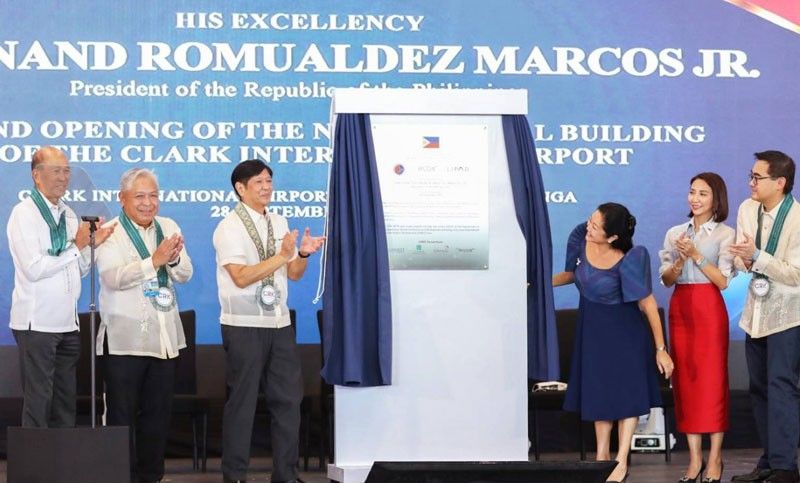Wanted: Private partners in transport projects

MANILA, Philippines — As the government deals with a budget shortfall, the Department of Transportation (DOTr) plans to privatize connectivity projects to make sure they are maintained in the long run.
The Marcos administration is turning to the private sector to improve transport facilities and upgrade existing ones after the Duterte leadership relied on foreign loans and tax revenues to build infrastructure projects.
Transportation Secretary Jaime Bautista called on private firms to take part in public-private partnership (PPP) projects to ensure that large-scale infrastructures are completed with the government facing a budget deficit.
Bautista said the DOTr wants to privatize 10 regional airports after his agency only received P2.49 billion for aviation development for 2023.
The DOTr had demanded a budget of P28.3 billion to finance the construction and modernization of around 50 airports nationwide.
“Some of these big-ticket projects have encountered limited budget allocations from the national government. We are therefore actively pursuing the PPP scheme to complete a number of these projects,” Bautista said at the 48th Philippine Business Conference and Expo.
“We plan to invite as many private sector participants in our infrastructure projects, such as the privatization of EDSA carousel, operation of our seaports, privatization of 10 provincial airports, the Cebu Bus Rapid Transit project and many more,” he added.
P1 trillion for airport developments
According to the DOTr, the government and private sector should complete at least P1 trillion in airport developments in the regions by next year.
The DOTr also reported that multiple airports across the archipelago are slated for an upgrade through PPPs, including Bohol-Panglao International Airport, Laguindingan International Airport, Bicol International Airport, among others.
For the maritime sector, the agency is getting a zero budget for the construction of seaports in 2023.
Last September Transportation Undersecretary Elmer Sarmiento said the DOTr had sought P800 million to put up new seaports, only for budget officials to disapprove the entire request.
To address this, Bautista said the DOTr may seek financing from a multilateral lender for the crafting of a masterplan involving the construction and upgrade of seaports.
The masterplan would help identify seaports that could already be shut on lack of utilization or renovated into another asset.
“We might have to shut some seaports if we have to shut them. Some of the seaports were built just to have a seaport. However, you have to study these projects first before you push through with them,” Bautista said.
“Before you put up a seaport, the operator should understand the population of the location. The operator should also know the products that can be transported. We have to compel operators to raise the utilization of their seaports.
Land transportation
On land transportation, Bautista has instructed the DOTr to find a private proponent who wants to buy the right to maintain and operate the EDSA busway.
Bautista told reporters that the government will find it difficult to maintain the EDSA busway and upgrade it in the future. He said Congress rejected the DOTr request for P212 million that it had planned on using for the installation of traffic signals.
“There is no budget for the EDSA busway next year. [Our proposal] for 2023 was denied, that’s why I’m really pushing for its privatization,” Bautista said.
Since 2020, the DOTr has spent a total of P738 million for the development and improvement of the EDSA busway: P155 million in 2020 for the procurement of concrete barriers to outline the exclusive lane; P110 million in 2020 and 2021 for the construction of the bus stations; and P473 million for the creation of a project management office tasked to oversee the infrastructure.
Based on records, as many as 550 buses pass through the EDSA busway every day, benefitting an average of 335,471 commuters on a daily basis.
The Marcos administration was forced to turn to PPPs for its infrastructure financing given that the budget deficit ballooned by 22 percent to a record P1.67 trillion last year, leaving it with the task of trimming public spending to rebalance the government’s fiscal position.
- Latest
- Trending





























